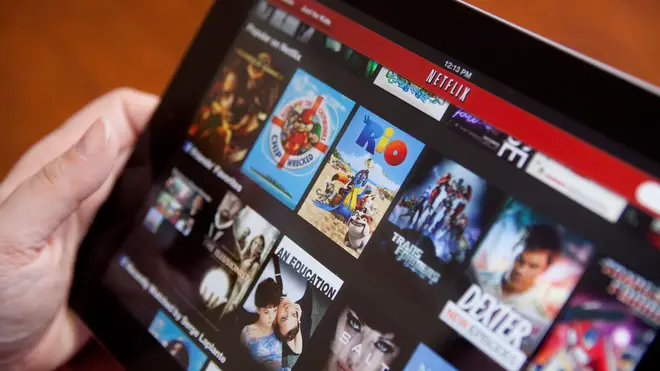
Paul Brand 10am - 12pm
20 April 2022, 08:43 | Updated: 20 April 2022, 11:57

Netflix has lost subscribers for the first time in ten years, sending the company's share prices plummeting.
The streaming company lost 200,000 subscribers between January and March, and is now considering minimising password sharing and creating a low-cost subscription supported by advertising.
Coronavirus lockdowns that drove binge-watching have lifted while rivals such as Apple TV and Disney+ have chipped away at Netflix's audience.
Meanwhile, escalating inflation over the past year has squeezed household budgets, leading more consumers to rein in spending.
Netflix also pointed to the decision to withdraw from Russia in protest at the war against Ukraine, which has resulted in a loss of 700,000 subscribers.
However, the loss of another two million is projected between April and June.
READ MORE: Harry says he's 'making sure the Queen is protected and has the right people around her'
READ MORE: Netflix 2022: How much is a subscription and how many subscribers do they have?
After revealing its disappointing performance, Netflix share prices plunged by more than 25%.
If this extends into Wednesday, shares will have lost more than half of their value this year.
About £115 billion in shareholder wealth would have been wiped out in less than four months.
Netflix estimated that about 100 million households worldwide are watching its service for free by using the account of a friend or another family member.
The company indicated it will expand a trial programme it has been running in Chile, Costa Rica and Peru, where subscribers can extend service to another household for a discounted price.
It offered no additional information about how a cheaper ad-supported tier would work or how much it would cost.
Netflix hopes these changes will help it build on its current 221.6 million worldwide subscribers, but they also risk alienating customers to the point they cancel the service.
The firm was buoyed two years ago while millions of consumers stuck at home during lockdowns, with 36 million additional subscribers in 2020.
But chief executive Reed Hastings believes this may have blinded management, telling a video conference on Tuesday: "Covid created a lot of noise on how to read the situation."